The Resurrection of Recovery
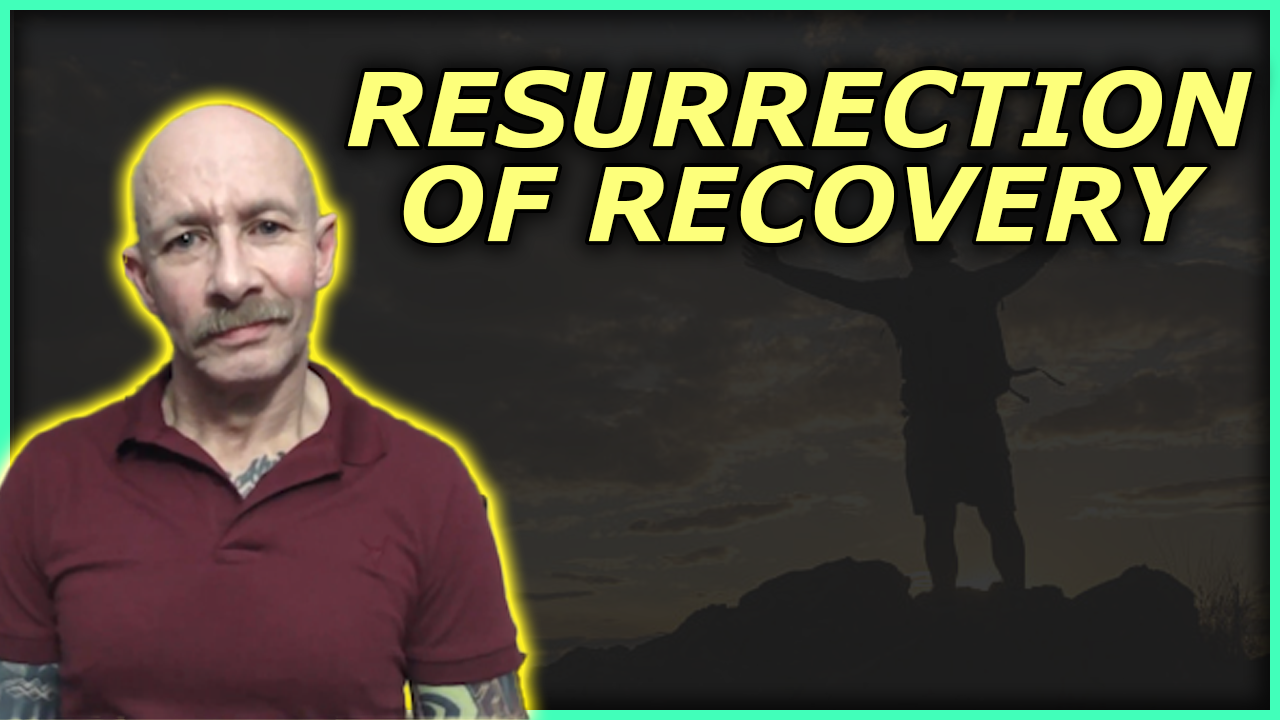
Content Warning: This study guide addresses crystal meth addiction, HIV diagnosis, partner loss, psychosis, suicidal ideation, and discussions of sexual behavior. Please engage with this material in a way that feels safe and supportive for your current stage of recovery.
I want to tell you about masks.
For years, I wore them without even knowing it. The high-functioning professional mask. The "I've got it all together" mask. The mask that let me perform at 140% when everyone else was at 90%, because that's what we do as gay men who never quite fit into the boys' club.
But here's what I've learned through my own recovery and through the stories of courageous people like Jacques: every mask we wear requires energy to maintain. Energy that could be spent on actually living. Energy that could be spent on healing. Energy that could be spent on discovering who we actually are underneath all that performance.
When we use crystal meth, we think we're taking off the masks. We think we're finally free. But really, we're just trading one set of masks for another, and the new ones are even harder to remove.
Today's conversation with Jacques Viljoen is about what happens when we finally—slowly, painfully, courageously—start taking the masks off for real.
Jacques' story is a testament to resilience, the power of staying put, and the possibility of creating new memories in the very places that once held our darkest moments. At 49 years old, Jacques shares his journey from suicidally low self-esteem as a teenager in South Africa to a 10-year relationship with crystal meth, to his current life of peace, purpose, and profound self-awareness.
What makes Jacques' story unique is that he didn't run away. He stayed in the same town, the same home, the same physical spaces where his addiction unfolded. And in doing so, he showed us something powerful: we can overwrite our trauma. We can create new neural pathways. We can reclaim our lives right where we are.
The Foundation: Identity, Self-Esteem, and the Search for Connection
Jacques describes living with "suicidally low self-esteem" since age 15. Growing up in South Africa surrounded by homophobic slurs, aggressive male role models, and adults behaving badly, he never saw himself reflected in the world around him. The men who were held up as examples—loud, aggressive, rugby-playing, car-fixing—were nothing like him.
This disconnection from self created what Jacques calls body dysmorphia, similar to what Miley Cyrus described after Hannah Montana. When you don't see yourself reflected anywhere, you lose touch with who you actually are. You start performing. You start seeking validation through whatever means available.
For Jacques, that meant cruising culture in his 20s—the pre-app era where connections were more organic but also more fraught with rejection and fleeting validation. Each encounter left him feeling momentarily seen but ultimately worse, because he knew he could have been anyone who crossed that person's path at that moment.
This is where many of our stories begin—not with the substance, but with the profound disconnection from self and the desperate search for connection, approval, and a sense of belonging.
Reflective Question: When you look back at your younger self before addiction took hold, what were you searching for? Was it connection, validation, escape, or something else entirely? Can you identify the moment you first felt truly disconnected from who you were?
Journal Prompt: Write a letter to your 15-year-old self. What was happening in your life at that age? What did you need to hear that no one was saying? What would you tell that younger version of you about belonging and worth?
The Gateway: Apps, Access, and the Slippery Slope
Jacques identifies the arrival of smartphone apps—particularly Recon.com—as a turning point. Suddenly, the thrill of cruising was available 24/7, right in his pocket. He could browse during lunch breaks, after work, while his partner Pierre watched TV. The accessibility was intoxicating.
This is where crystal meth entered the picture. On these platforms, guys would open conversations with three letters: PNP (Party and Play). At first, Jacques was judgmental: "I don't do drugs." But curiosity, combined with the promise of enhanced sexual experiences and deeper connections, eventually wore down his resistance.
What started as "just this once" became a pattern. The drug promised connection but delivered isolation. It promised liberation but created new prisons. And like so many of us, Jacques found himself caught in a cycle he never intended to enter.
The apps didn't cause the addiction, but they provided constant access to both the substance and the community that used it. They made it easier to hide, easier to compartmentalize, and easier to tell ourselves "I can stop anytime."
Action Exercise: Technology Audit—Take an honest inventory of the apps on your phone. Which ones connect you to your recovery? Which ones might be triggers or gateways back to old patterns? Consider deleting or moving triggering apps off your home screen. If you're not ready to delete them, what boundary could you set instead?
Journal Prompt: Reflect on the role of technology and accessibility in your own journey. Were there specific platforms, apps, or online communities that facilitated your use? How has your relationship with technology changed in recovery? What healthy boundaries do you need to maintain?
The Partnership: Shared Addiction and Trauma Bonding
Jacques and Pierre were together for 19 years, and for 10 of those years, they used crystal meth together. What started as Jacques' individual use eventually became their shared experience. Pierre went from saying "I don't do drugs" to "let me try a little" to becoming equally dependent.
This is the complex reality of partner use that few people talk about honestly. Jacques describes how they would be awake for days, their energy fields connected, existing in a unique reality that only they understood. There's a trauma bond that forms in this experience—you survive something together that others can't comprehend.
But there's also profound dysfunction. Jacques talks about how the drug distorts communication, creates psychosis, and fundamentally changes the relationship. They spent years in a cycle of using, coming down, fighting, reconciling, and using again. The substance became the third entity in their relationship.
What makes Jacques' story powerful is his honesty about the codependency. He didn't romanticize it or minimize it. He acknowledged that their shared addiction created a unique bond while also recognizing the damage it caused. And when Pierre passed away in May of last year, Jacques had to navigate grief while maintaining his recovery—a challenge that tested everything he'd built.
Reflective Question: If you've used with a partner, how has that shared experience affected your recovery? Do you carry guilt about introducing someone to use, or resentment about being introduced? How do you honor the connection you shared while also acknowledging the harm?
Action Exercise: Relationship Inventory—If you're in relationship (past or present) where substances played a role, write down three things: (1) What was real connection versus drug-induced connection? (2) What patterns do you want to avoid in future relationships? (3) What have you learned about healthy interdependence versus codependency? If writing feels too vulnerable, consider discussing this with a therapist or trusted recovery friend.
The Revolution: Staying Put and Overwriting Memories
Here's where Jacques' story diverges from many recovery narratives. He didn't move to a new city. He didn't block all his dealer's numbers. He didn't delete every app. Instead, he stayed in the same town, the same house, and he consciously worked to overwrite the traumatic memories associated with those spaces.
Jacques talks about the neuroscience of this: every time you recall a memory, you have the opportunity to reconsolidate it differently. By staying in the same physical spaces and creating new, sober experiences there, he was literally rewiring his brain. He was proving to himself that these places didn't have power over him.
This doesn't mean his approach is right for everyone. Some people need geographic distance. Some people need to block numbers and delete apps. But Jacques offers us an alternative model—one where we reclaim our spaces rather than abandoning them.
He describes going back to places where he used to use and consciously creating new associations. The bathroom where he used to shoot up became the place where he practices self-care. The bedroom where meth-fueled marathons happened became a sanctuary for rest and genuine intimacy. The apps that once connected him to dealers became... well, they're still there, but they no longer hold the same power.
This is about agency. This is about deciding that your geography doesn't determine your destiny. This is about trusting yourself enough to stay and heal rather than always running.
Reflective Question: What is your relationship with the physical spaces where your addiction unfolded? Do you need distance, or are you ready to reclaim those spaces? What would it feel like to create new, healing memories in places that once held trauma?
Action Exercise: Memory Overwriting Practice—Identify one specific location associated with your use (a room, a corner of your home, a specific spot in your city). Return to that space sober and intentionally create a new memory there. This could be meditation, journaling, calling a recovery friend, or simply sitting peacefully. Document this experience. How does it feel to reclaim this space?
The Grief Work: Continuing Recovery After Loss
In May of last year, Jacques lost Pierre. His partner of 19 years, the person he'd survived addiction with, was gone. And Jacques had to navigate that profound loss while protecting his recovery.
This is one of the most challenging aspects of recovery that doesn't get discussed enough: how do we grieve without using? How do we sit with unbearable pain and not reach for the substance that once numbed us?
Jacques talks about how his recovery became even more important after Pierre's death. He couldn't let Pierre's recovery journey—and his own—be for nothing. The grief was enormous, but using wasn't an option because it would dishonor everything they'd both fought for.
What's powerful is how Jacques reframed his defining moment. He once thought breaking free from addiction would be his life's defining achievement. But after Pierre's death, he realized that continuing to thrive in the face of profound loss—that was the real testament to his recovery.
This teaches us that recovery isn't a straight line. It's not "fix the addiction and you're done." Recovery is what carries us through life's inevitable challenges. It's the foundation that holds us when everything else falls apart.
Journal Prompt: Grief and Recovery—Whether you've lost someone to death, lost relationships due to your addiction, or are grieving the time lost to substance use, write about your relationship with grief. What losses do you carry? How has grief shown up in your recovery? What would it mean to honor your losses without using them as an excuse to use?
Action Exercise: Creating Ritual—Develop a personal ritual for difficult days when grief, stress, or triggers feel overwhelming. This could be calling your recovery buddy, doing a specific meditation, taking a particular walk, or engaging in a creative activity. Write out your "emergency protocol" for hard days and keep it somewhere visible.
The Toolkit: Jacques' Prescription for Recovery
Throughout the conversation, Jacques offered practical wisdom for anyone on this path. Here's what worked for him:
Stay Connected: He credits friends, chosen family, and his recovery community for holding him accountable and providing support. Isolation is the enemy of recovery.
Rewrite Your Narrative: Instead of seeing himself as damaged or broken, Jacques learned to see himself as someone who survived something extraordinary. The experience doesn't define him, but it did teach him profound lessons.
Create Structure: Daily routines, work commitments, and personal development goals all provided scaffolding for his recovery.
Therapy and Processing: Jacques worked through his trauma, his identity struggles, and his relationship patterns with professional support.
Patience and Self-Compassion: He acknowledges that this is a decades-long journey. There's no rushing healing.
Staying in Reality: By not running away or constantly blocking triggers, Jacques learned to navigate the real world with all its complexity. This built genuine resilience rather than white-knuckle abstinence.
Reflective Question: Of Jacques' tools, which ones resonate with you? Which ones make you uncomfortable or skeptical? What does your resistance to certain approaches tell you about what you might need to explore?
Action Exercise: Build Your Own Toolkit—Create a list of 10 things that support your recovery. These should be concrete, actionable items (not vague concepts like "be positive"). Examples: Morning meditation, Thursday night recovery meeting, weekly call with sponsor, daily journaling, Monday gym session, checking in with recovery buddy, etc. Put this list somewhere you'll see it daily.
Finding Your Own Path Forward
Jacques' story reminds us that there are many ways to recover. His path—staying put, gradually building resilience, overwriting traumatic memories, maintaining his relationship with his environment—might not be your path. And that's okay.
What matters is finding what works for you. Maybe you need to move cities. Maybe you need to block every number and delete every app. Maybe you need a structured program. Maybe you need medication-assisted treatment. Maybe you need residential rehab. Maybe you need to do it Jacques' way.
The point is: you get to decide. Recovery is not one-size-fits-all. But it does require one universal element—the decision to choose yourself, your healing, and your future over the temporary relief of the substance.
Journal Prompt: Your Recovery Vision—Imagine yourself five years from now, thriving in recovery. Where are you living? What does your daily life look like? Who is in your support system? What have you accomplished? What has changed internally? Write this vision in present tense, as if it's already true: "I am living in... I wake up each morning and... I'm surrounded by... I feel..."
Action Exercise: Next Right Thing—Recovery doesn't require you to have everything figured out. You just need to identify the next right thing. Right now, today, what is one small action you can take toward your recovery? It might be researching a therapist, attending a meeting, calling a friend, throwing away a pipe, deleting an app, or simply getting through the next hour without using. Do that one thing. Then identify the next.
Y'all, Jacques' story split me open in the best way. His honesty, his courage, his willingness to stay and face his demons rather than running—it's exactly the medicine so many of us need.
What struck me most was his commitment to overwriting the narrative. He didn't let his past define his future. He didn't let the physical spaces of his addiction imprison him. He stayed. He healed. He created new memories on top of the old ones. And now he's thriving in the very place where he once struggled to survive.
This is the work, friends. This is what it means to truly recover—not just to stop using, but to reclaim your life, your spaces, your story. To decide that your trauma doesn't get the last word.
Jacques also showed us something vital: recovery continues through life's hardest moments. Losing Pierre could have been the excuse to use again. Instead, it became proof of how far he'd come. That's the kind of resilience we're all building, one day at a time.
As Jacques said so beautifully: You can thrive. There is life after meth. A good life. A meaningful life. A life that's truly yours.
If you're reading this and thinking "I can't do this," I want you to know something: Jacques didn't think he could either. None of us do at first. But we can. You can. One small step, one new memory, one brave choice at a time.
I see you. I believe in you. And I'm honored to walk this path alongside you.
Love you,
Dallas 💚
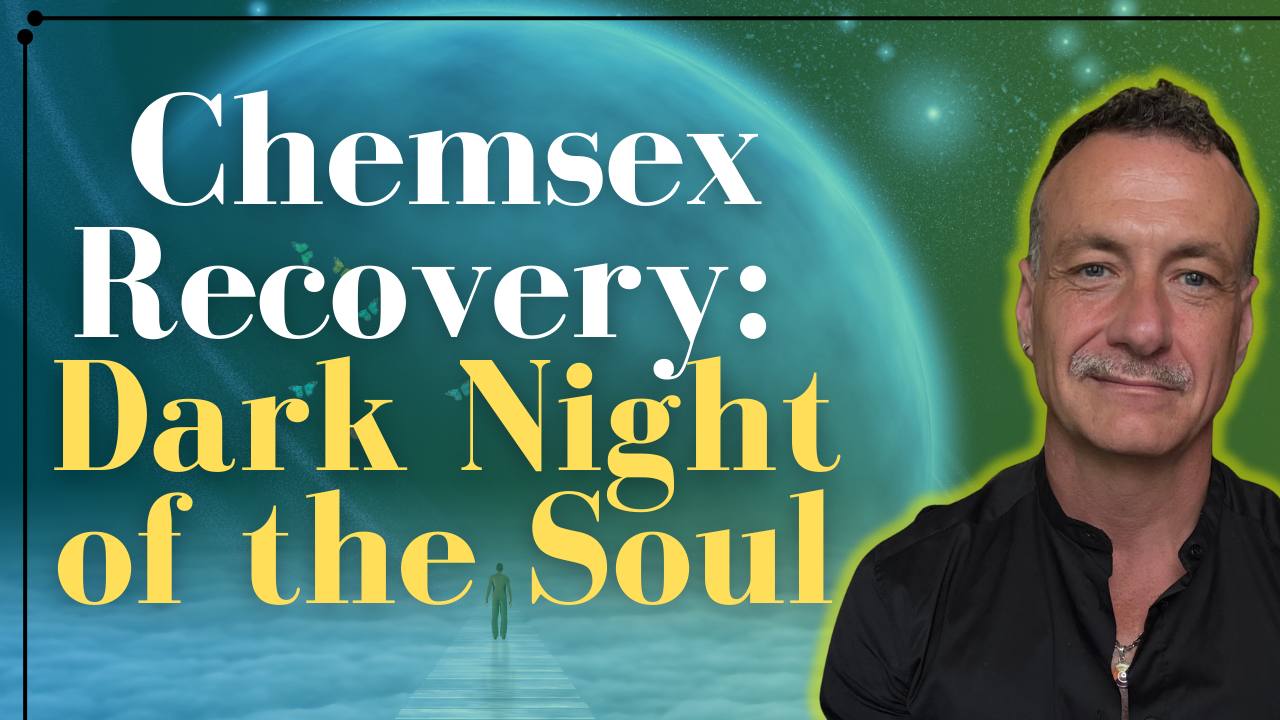
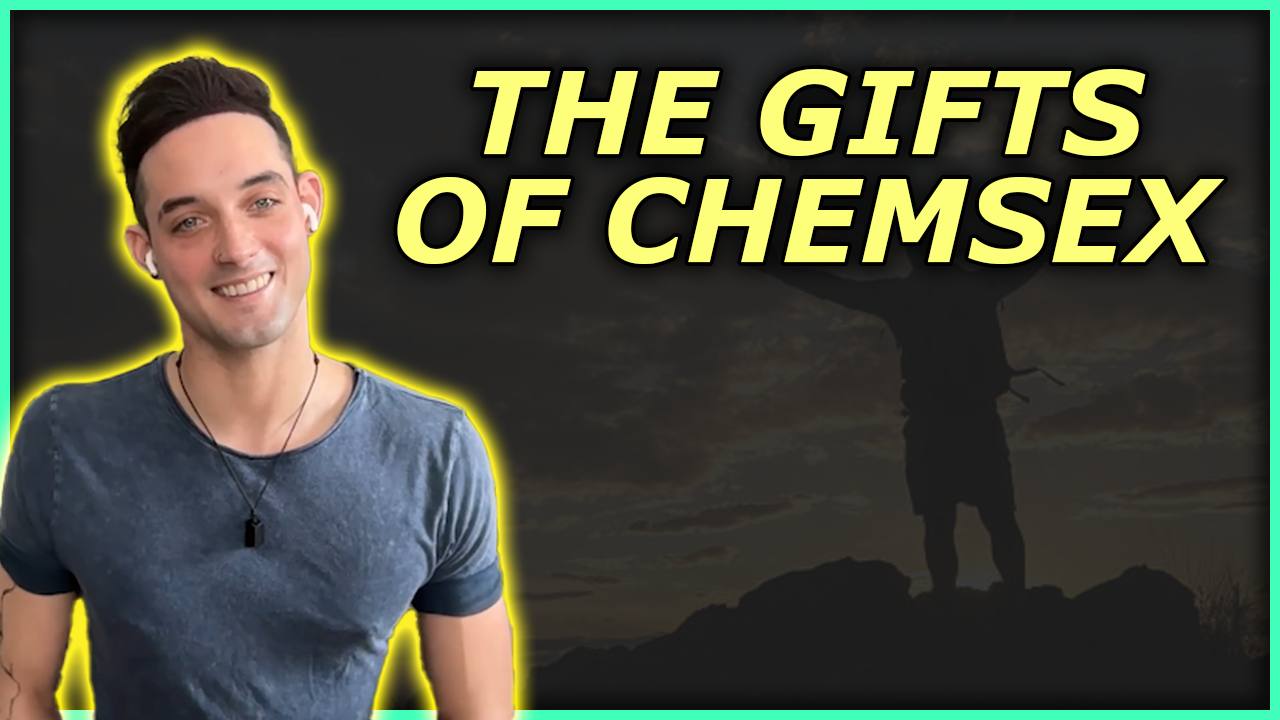
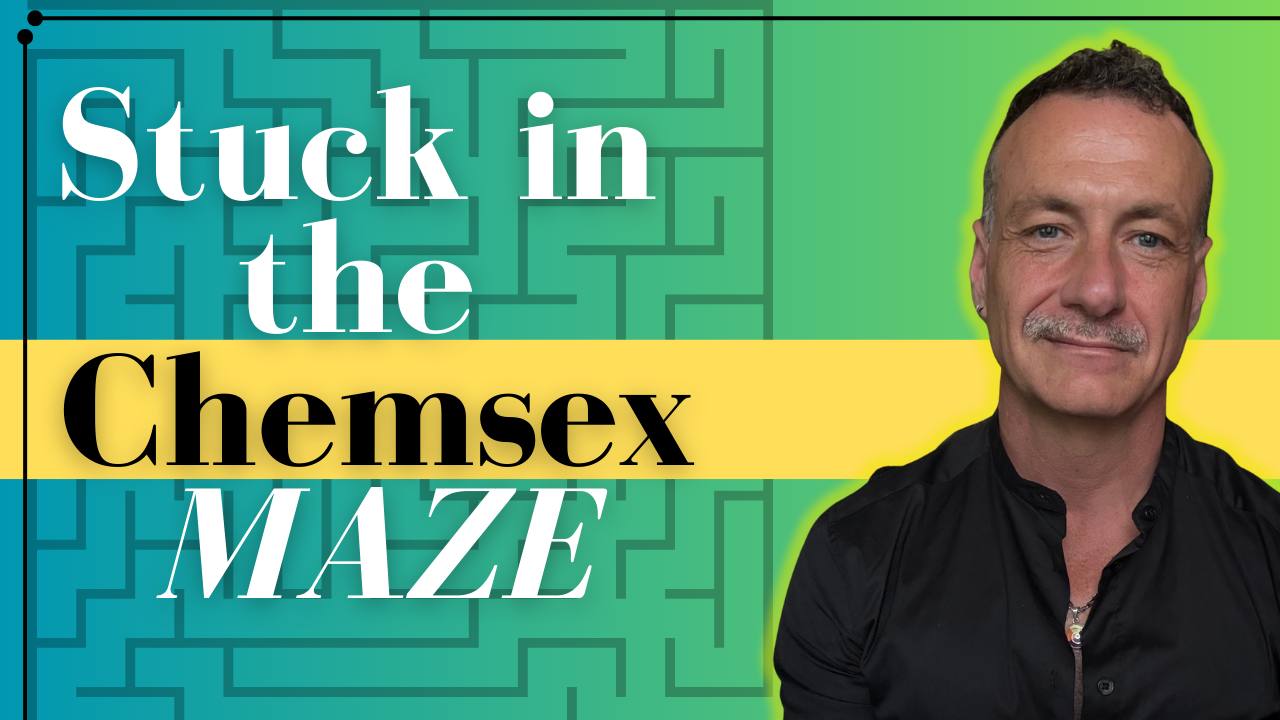
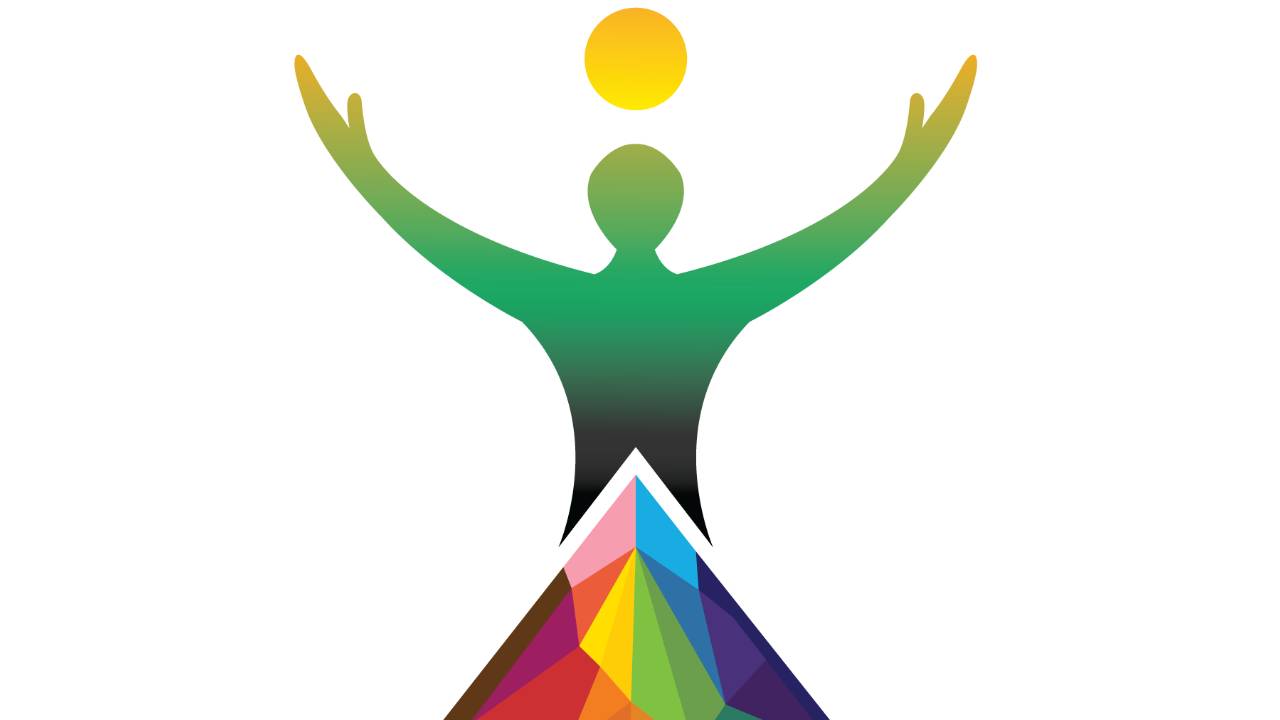
Responses